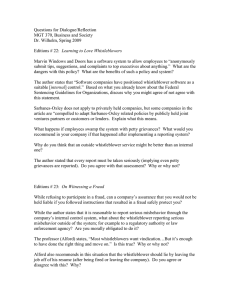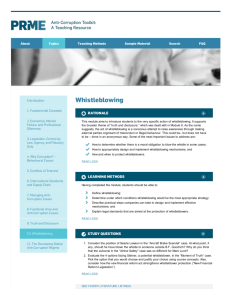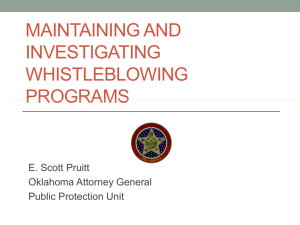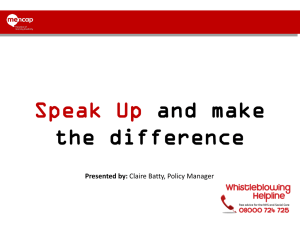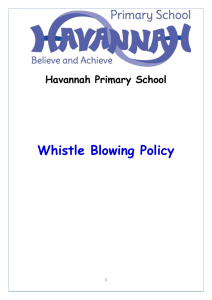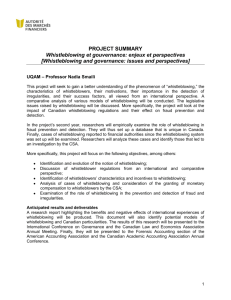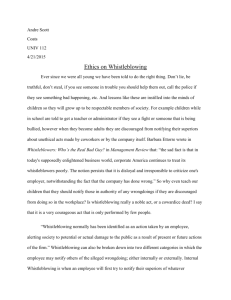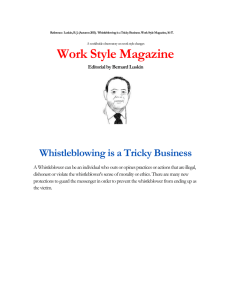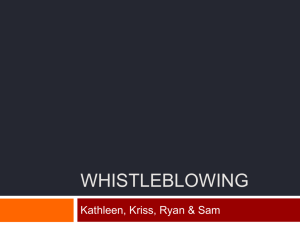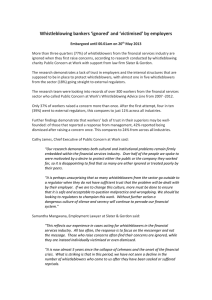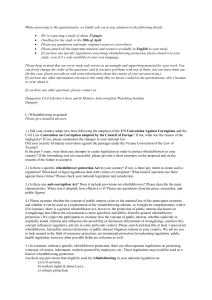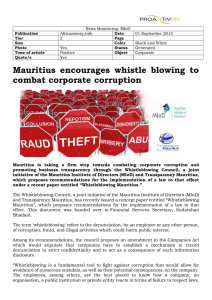Whistleblowers
advertisement
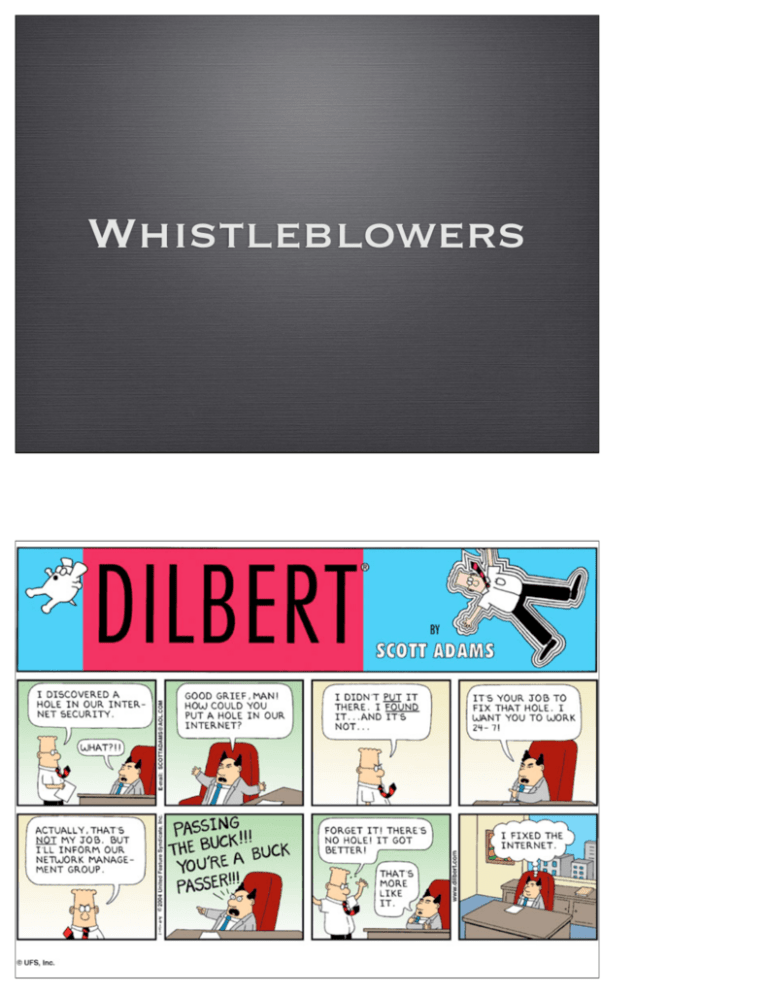
Whistleblowers Overview of Whistleblowing • A Whistleblower is someone who: – Tries to report harmful situation through internal channels – Rebuffed by organization – Makes disclosure through unauthorized channels • Whistleblowers sometimes punished for their actions – Lose job or all chances of advancement – Financial and emotional hardship • False Claims Act • Whistleblower Protection Act False Claims Act - 1863 Allows people to file suit against federal contractors claiming fraud against the government. Persons filing under the Act stand to receive a portion (usually about 15–25 percent) of any recovered damages. The government has recovered nearly $22 billion under the False Claims Act between 1987 (after the 1986 amendments) and 2008.[1] -Wikipedia Whistleblower Protection Act - 1989 • Law that protects federal whistleblowers, or persons who work for the government who report agency misconduct. • What about state employees? • What about private employees? Boisjoly vs. Morton Thiokol/NASA • Wrote memo in 1985 about possible danger – Roger Boisjoly and Morton Thiokol engineers documented dangers of low-temperature launches – Morton Thiokol executives and NASA officials overrode and hid concerns • Challenger explosion in 1986 • Boisjoly shared information with Presidential commission • Morton Thiokol retaliated – Boisjoly took medical leave for stress, then quit – Found job as a consultant two years later Case: Hughes Aircraft • Factory for military-grade chips • Some defective chips being approved • Ruth Goodearl reported incidents to upper management • Consequences for Goodearl – Harassed – Fired – Unemployment – Bankruptcy – Divorce • Goodearl and Ruth Aldred sued Hughes Aircraft under False Claims Act and won Kevin W. Bowyer “Goodearl and Aldred Vs. Hughes Aircraft: A Whistle-Blowing Case Study” http:// www.cse.nd.edu/~kwb/nsf-ufe/1043.pdf Motives of Whistleblowers • People become whistleblowers for different reasons • Morality of action may depend on motives – Good motives • Desire to help the public • Fulfilling job responsibility – Questionable motives • Retaliation • Avoiding punishment Corporate Response to Whistleblowing • Whistleblowers are disloyal • Whistleblowing has many harms – Bad publicity – Disruption of organization’s social fabric – Makes it hard for people to work as team • If company causes harm, public can use legal remedies to seek damages • Critique: Overly legalistic view of public harm? Whistleblowing as Organizational Failure • Whistleblowing harms organization – Bad publicity – Ruined careers – Erodes team spirit • Whistleblowing harms whistleblower – Retaliation – Estrangement • Organizations should improve communication • Critique – Is this realistic? – Robert Spitzer: Organizations should return to using principle-based ethics in decision making Whistleblowing as Moral Duty • • Richard DeGeorge’s questions for whistleblowing 1. Is serious harm to the public/owners at stake? 2. Have you told your manager? 3. Have you tried every possible inside channel? 4. Do you have persuasive documented evidence? 5. Are you sure whistleblowing will work? Under what conditions must you blow the whistle? – DeGeorge: If all five conditions are met – Others: If conditions 1-3 are met – Still others: Whistleblowing is never morally required Moral Responsibility • Exclusive Responsibilities – Role responsibility – Causal responsibility – Legal responsibility • Moral responsibility – Must be borne by people – Is not exclusive • Michael McFarland: A team should be held to a higher level of moral responsibility than any of its members Whistleblowing around the world 8-15
